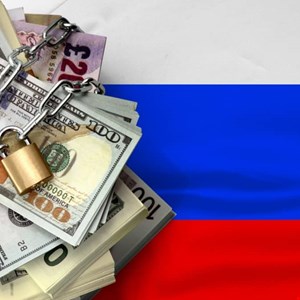UK researchers say they have sent a clear message that the country “is not a safe haven for money laundering”, after having done dozens of arrests and to seize millions of two large Russian criminal networks.
The National Crime Agency (NCA) yesterday revealed Operation Destabilis, a considerable effort to expose two previously unknown money laundering practices: Smart and Tgr.
The two Russian-speaking networks would have washed funds for transnational crime groups such as the notorious Kinahan cartel and Russian customers such as the sanctioned Russia today helped media company to circumvent financial limitations in the UK to invest money in the UK.
They also helped with the Russian cyber criminals, including the Ryuk group to launder millions of dollars in ransom that are paid by victims, according to the NCA.
Read more about money laundering: money laundering dominates British fraud cases
The core of the operation was aimed at exposing a complex schedule in which TGR and SMART collected funds in one country, often made the equivalent value available in another through physical cash transfers in another – usually in cryptocurrency.
“This offers a mutual inexpensive service, which is the movement of cash streamline generated by crime groups in the West, while at the same time helping crypto for cyber criminals money laundering and Russian oligarchs and elites to circumvent sanctions,” the NCA said.
Crime groups would then reinvest this crypto in their ‘company’ by buying more drugs and/or firearms, completely circumventing the banking system.
The crime agency described the UK as a “key hub” for this activity, although both networks operated in 30 countries and often led funds through the middle East.
Sanction groups
The news was unveiled at the same time that the Office of Foreign Assets Control (OFAC) of the US Treasury sanctions announced against the leaders of the two networks and four companies linked to TGR.
The sanctioned individuals were smart boss Ekaterina Zhdanova, alongside Khadzi-Murat Magomedov and Nikita Krasnov-Twee people with whom she worked closely to facilitate money laundering.
Also sanctioned, TGR boss George Rossi and his second in Commando Elena Chirkinyan, as well as Andrejs Bradens (Aka Andrejs Carenoks) whose Thai Siam Expert Trading Company was also punished by OFAC for exporting electronics to Russia.
Arrests and imprisonment
The NCA unveiled various studies that took place as part of Operation Destabilis, including:
- A courier network that has carried out cash transfers at 55 different British locations for a period of four months, on behalf of at least 22 suspected criminal groups. A courier in this network, Fawad Saiedi, was instructed by Zhdanova and Krasnov to launder £ 15 million ($ 19.1 million) in criminal cash
- An extensive courier network led by Semen Kuksov and Andrii Dzekta, who coordinated with Krasnov to launder more than £ 12 million in the United Kingdom in a period of two and a half months, as well as managing similar activities throughout Europe. Kuksov and Dzekta were sentenced to five years and five years in prison for five years respectively
In total, the NCA has already made 84 arrests and seized £ 20 million in cash and crypto so far.
NCA director general of operations, Rob Jones, said that the networks were previously unknown to the international law enforcement or supervisors.
“The NCA and partners disrupted this criminal service at every level. We have identified and acted against the Russians who pull the strings at the very top, so that the atmosphere of legitimacy was removed so that they could weave illegal funds in our economy,” he added.
“We have also achieved the most important coordinators who allow the element -based element of their operation in the UK, making it extremely difficult for them to operate here and to send a clear message that this is not a safe haven for money laundering.”
Although the leaders of the networks are still free and will continue their activity, the NCA claimed that its operation was extremely expensive for SMART and TGR. It has calculated that they operate on a very low profit margins of only 3% committee, which means that they have to launder around £ 700 million for free to repay the £ 20 million already seized.



